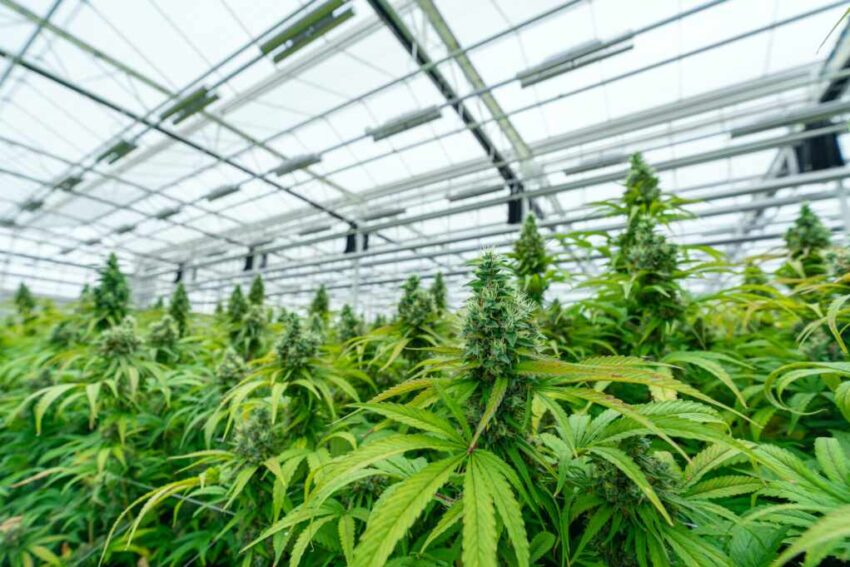Trump’s Consideration of Marijuana Rescheduling Ignites Debate Over Federal Drug Policy
Story Snapshot
- Trump is weighing a move to reschedule marijuana from Schedule I to Schedule III, potentially easing federal restrictions.
- The cannabis industry has been actively lobbying for reform and increased market access.
- The Biden administration’s earlier rescheduling efforts stalled, leaving the Trump team to inherit a politically charged issue.
- Internal White House reviews are ongoing, with no formal executive action yet announced.
Trump’s Openness to Cannabis Reform: Industry Influence and Policy Concerns
President Donald Trump’s recent remarks have placed marijuana rescheduling at the center of a national political debate. By proposing to move cannabis from Schedule I to Schedule III, Trump signals a willingness to reconsider federal drug policy, a move that could fundamentally shift the legal landscape for consumers, businesses, and law enforcement. Industry leaders, including prominent figures like Trulieve CEO Kim Rivers, have actively lobbied for this change, channeling financial support into political action committees. While advocates tout economic benefits and expanded access, some have raised concerns about industry influence.
Trump considers reclassifying marijuana as less dangerous drug: report https://t.co/cfIjBHsoOM
— FOX Business (@FoxBusiness) August 10, 2025
The cannabis industry’s increasing role in shaping federal policy is notable, with donors gaining access and influence through campaign contributions. The intersection of finance, lobbying, and regulatory reform has raised questions about the potential for special interests to influence policy. Trump’s engagement with executives at his Bedminster, N.J., event exemplifies the delicate balancing act between economic opportunity and law-and-order messaging. Internal debate within the White House reflects competing priorities: some advisors emphasize political risk, while others argue that reform aligns with public opinion and pragmatic governance.
Historical Background and Political Context: The Long Road to Federal Marijuana Reform
Marijuana has been federally classified as a Schedule I substance since 1970, placing it among drugs deemed to have no accepted medical use and a high potential for abuse. Despite growing bipartisan support for reform, past administrations, including Biden’s, have failed to complete the rescheduling process. As of August 2025, medical marijuana is legal in 40 states and Washington, D.C., while 24 states plus D.C. have legalized recreational use. Persistent federal prohibition creates legal and financial barriers for businesses, complicates law enforcement efforts, and fuels ongoing debate over states’ rights versus federal authority.
The Trump administration inherited an unfinished review of marijuana’s federal classification and now faces mounting pressure from both industry and political stakeholders. White House Chief of Staff Susie Wiles has requested agency reports, which are under active review. The administration’s next steps remain uncertain, with advocates pushing for swift executive action and opponents warning of possible unintended consequences. The issue is further complicated by ongoing legal challenges and the threat of increased government overreach, a persistent concern for those who prioritize individual liberty.
Impact Analysis: Economic, Social, and Law Enforcement Implications
If Trump moves forward with rescheduling, immediate effects could include easier access to cannabis for medical patients, increased investment and job creation, and a boost in tax revenues for states and the federal government. The banking and financial sectors would gain opportunities to serve cannabis businesses, while pharmaceutical and agricultural industries could expand research and product development. For law enforcement, rescheduling may reduce marijuana-related arrests and prosecutions, potentially shrinking the illicit market and reallocating resources to more pressing public safety concerns. However, concerns persist about public health risks, youth access, and ongoing state-federal conflicts.
Political ramifications are significant, with Trump’s stance potentially attracting younger and independent voters. The move may also shift public perception ahead of the 2026 midterms and influence bipartisan cooperation on drug policy. Critics argue that rescheduling could erode family values if not carefully managed, while proponents see potential for criminal justice reform and reduced stigma for cannabis users. The debate underscores broader questions about government overreach, regulatory clarity, and the future of American drug policy.
Sources:
Trump considers reclassifying marijuana as less dangerous drug: Fox Business
Trump considers reclassifying marijuana as less dangerous drug: UPI
Trump says he’s going to look at marijuana as White House chief of staff receives rescheduling reports: Marijuana Moment
Trump Marijuana Policy: MPP
Click this link for the original source of this article.
Author: Editor
This content is courtesy of, and owned and copyrighted by, https://conservativeamericatoday.com and its author. This content is made available by use of the public RSS feed offered by the host site and is used for educational purposes only. If you are the author or represent the host site and would like this content removed now and in the future, please contact USSANews.com using the email address in the Contact page found in the website menu.








